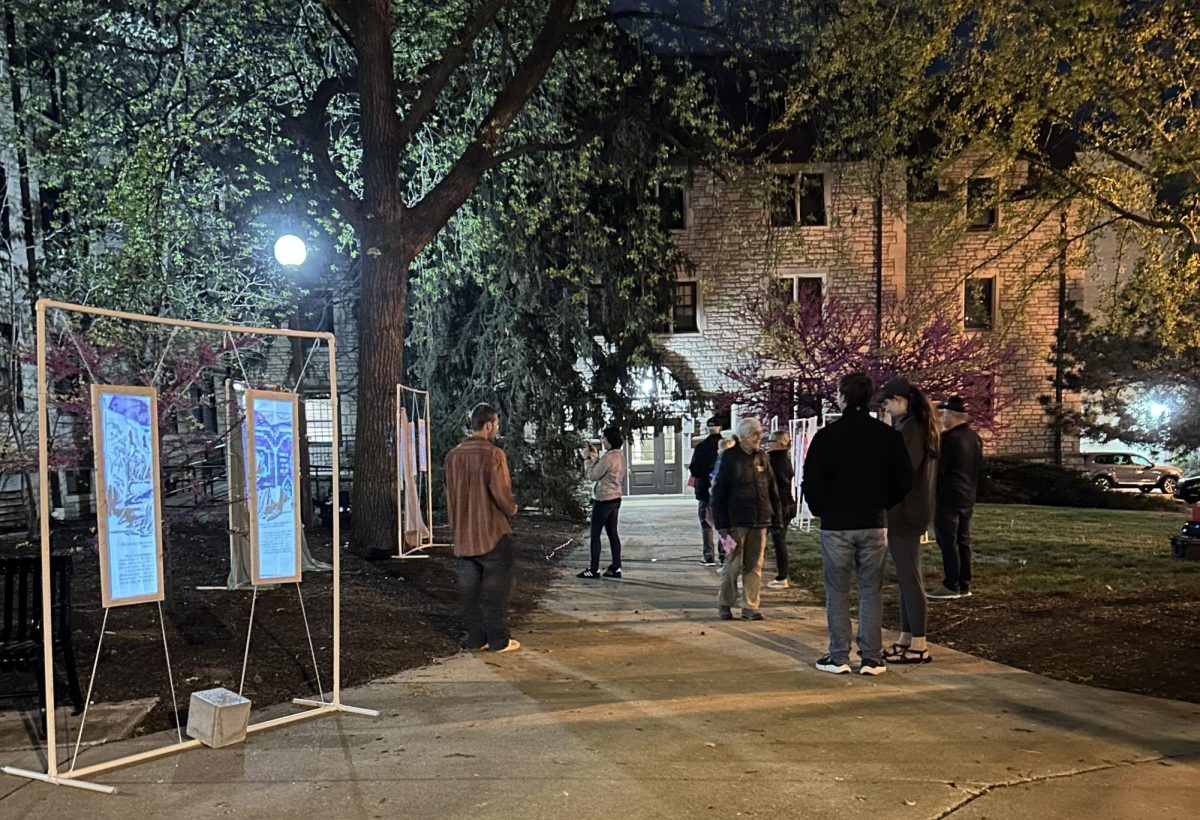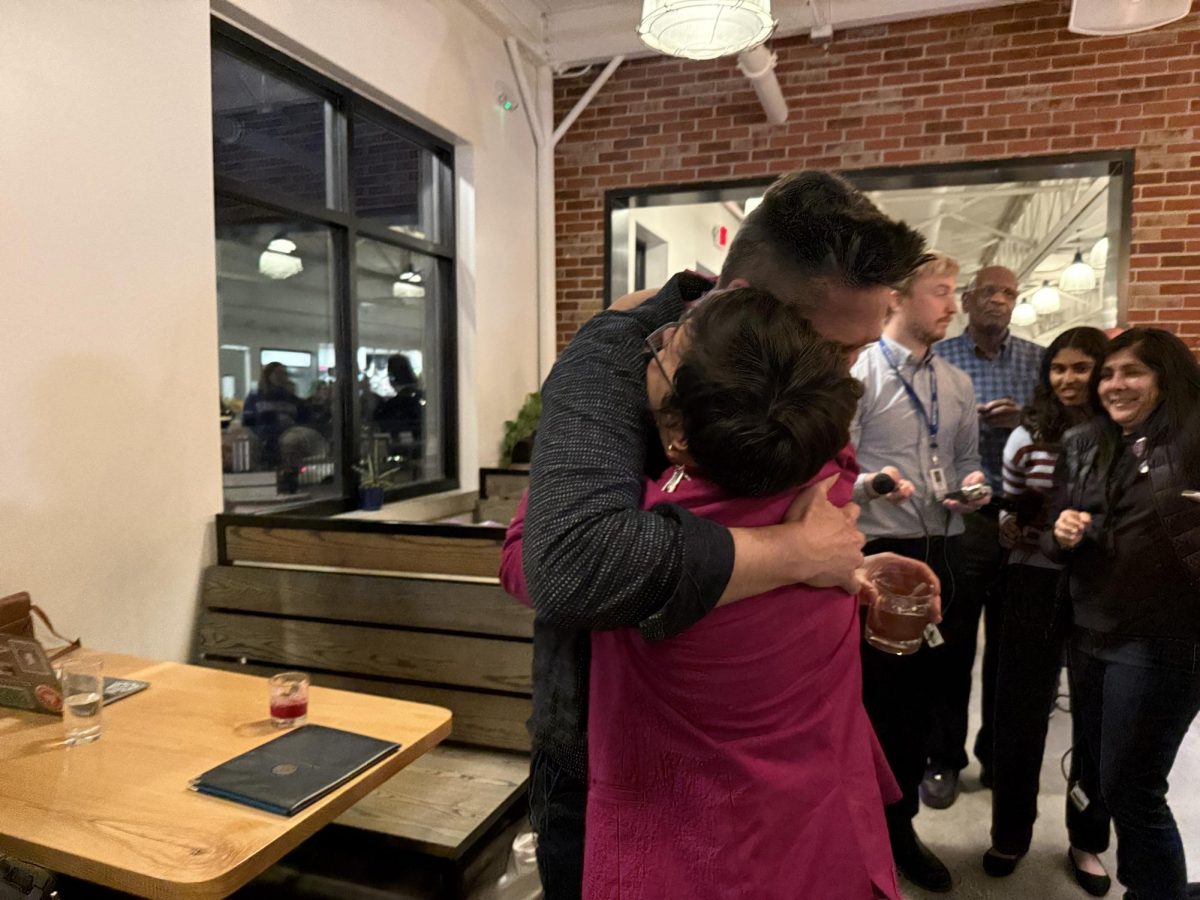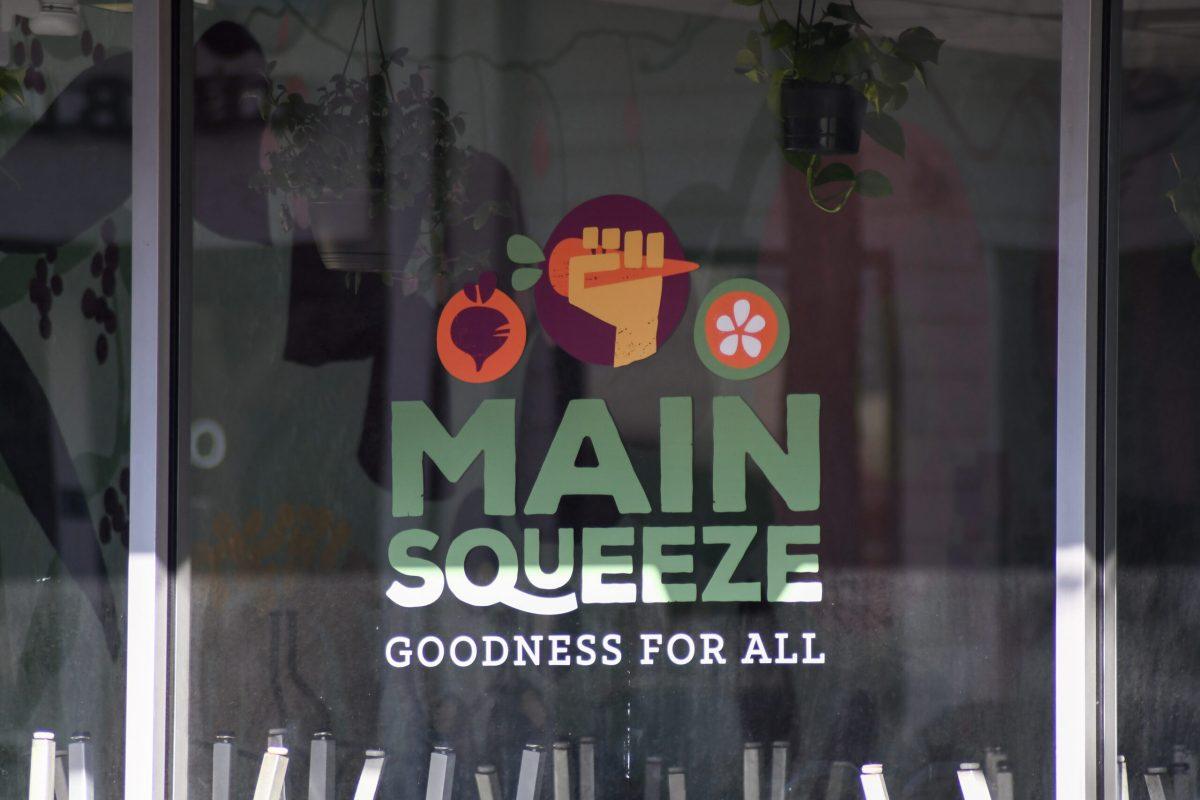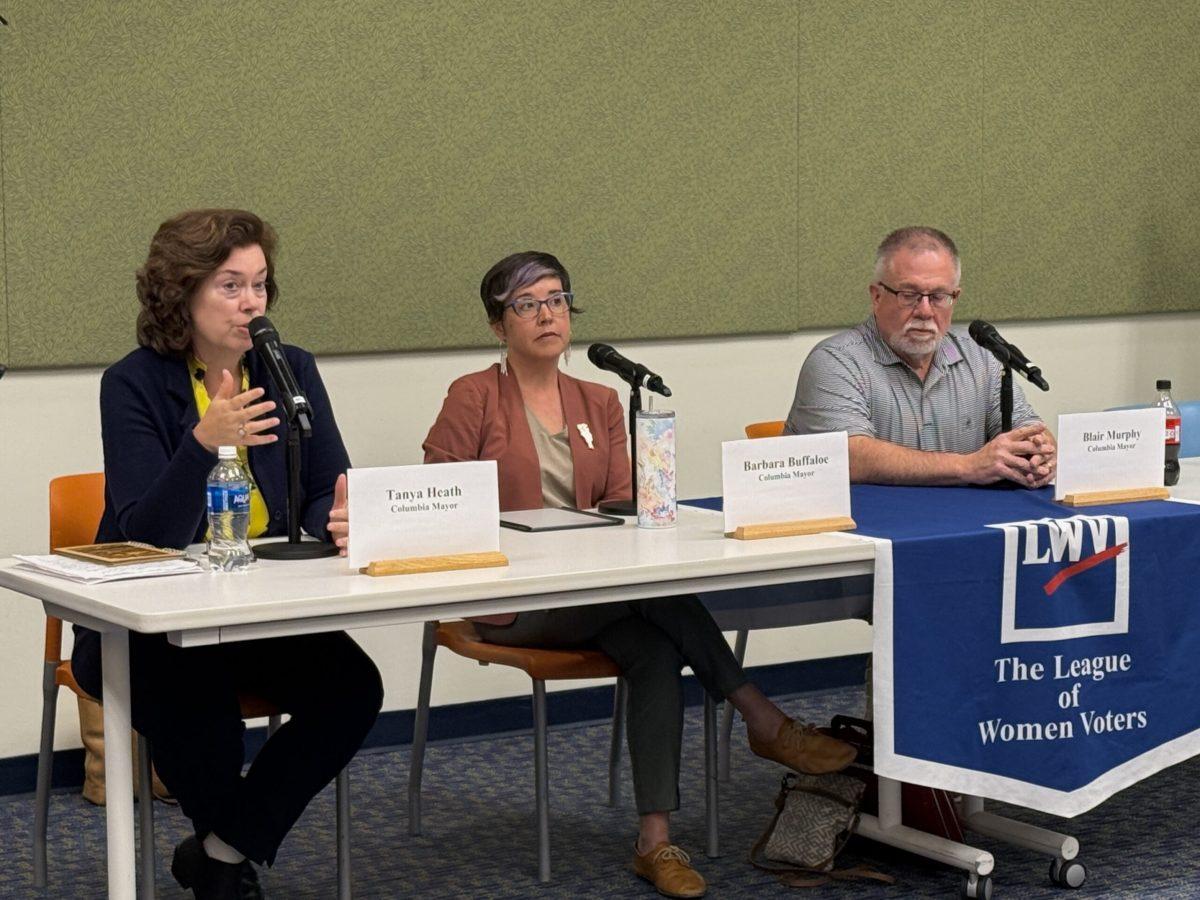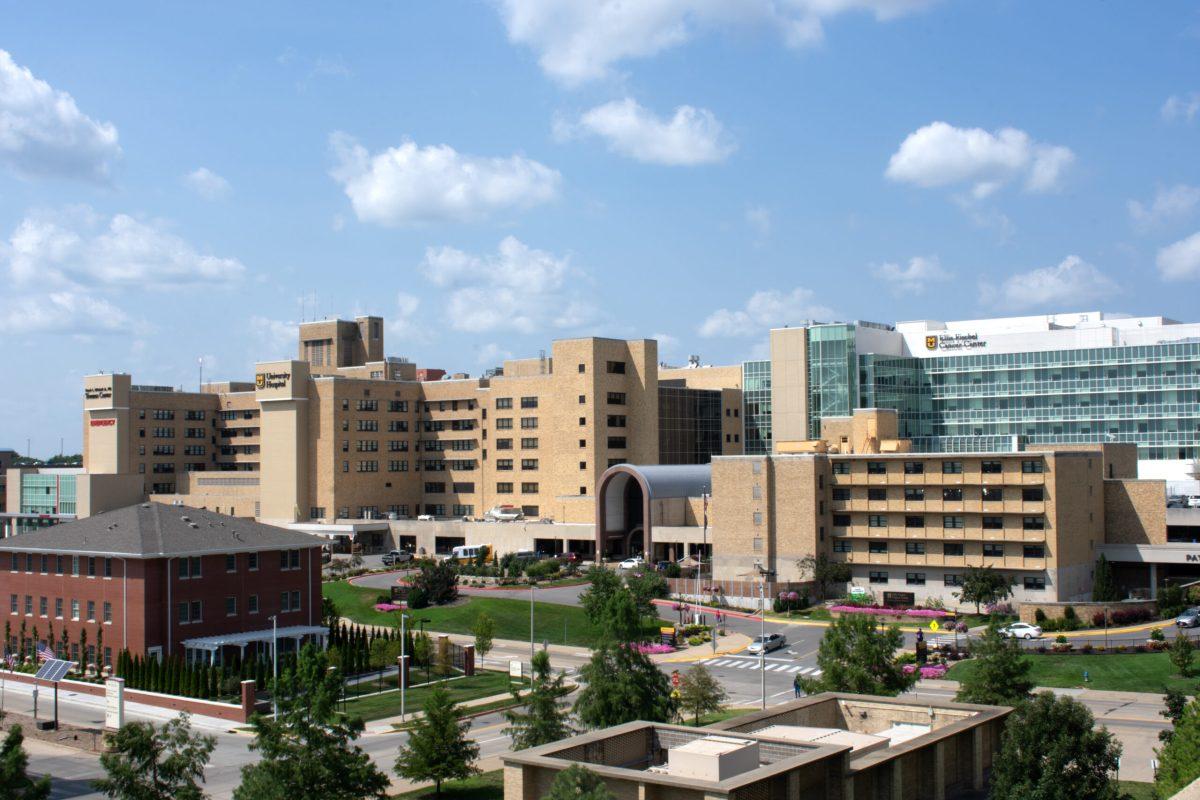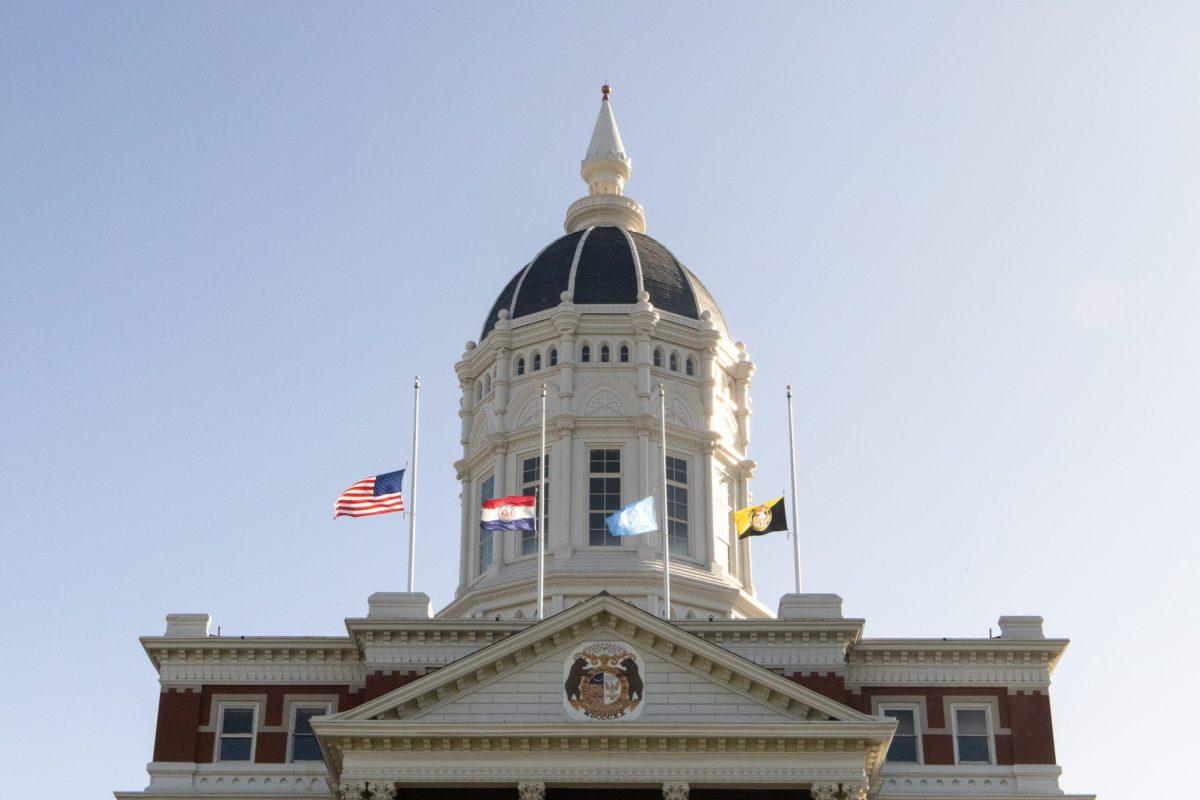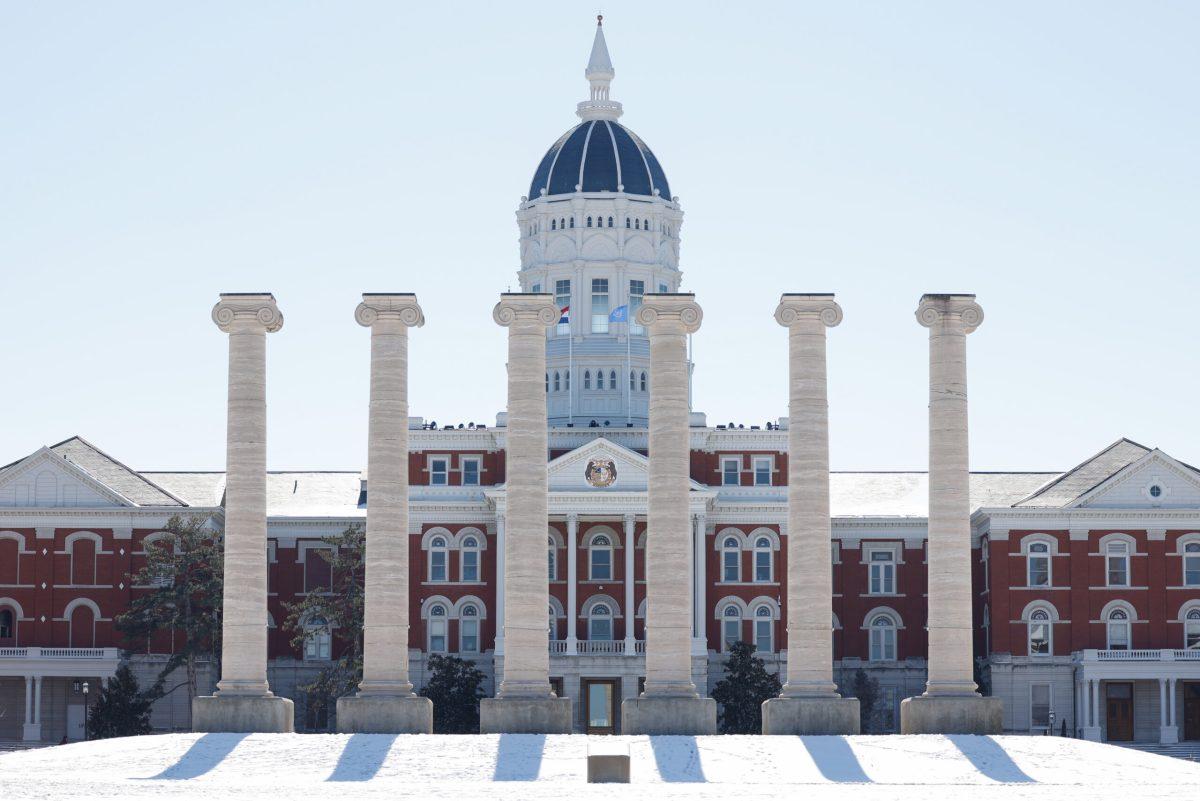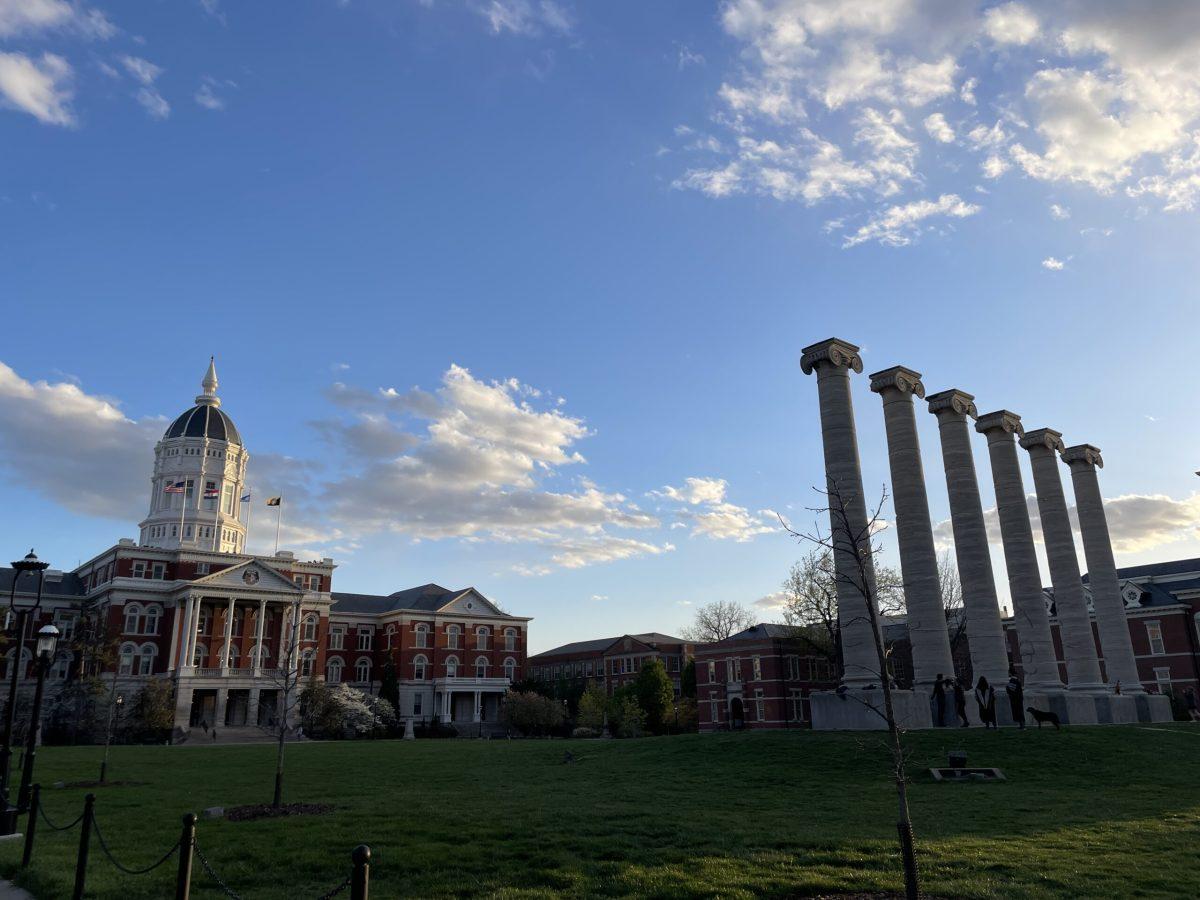One only had to listen to Reuben Faloughi’s voice to understand his pain, anger and frustration.
During the second “Racism Lives Here” protest, Faloughi, one of the organizers of the movement, stood on a chair in the Student Center with hundreds silently watching and waiting to hear what he had to say.
“I don’t like to scream,” Faloughi said. “I don’t like to yell, but nobody wants to listen. Nobody listens in a forum. Nobody listens in an email. This is my experience as a black man.”
Faloughi, a graduate student at MU, grew up in Georgia, where he was exposed to racism from a young age.
“Georgia’s an interesting place because the racism is there, but everybody kind of understands it,” Faloughi said. “Everybody’s been confronted by it in some way.”
Faloughi was no exception to experiencing racism in Georgia. He remembers having to pick whether his friends were going to be white or black. He remembers seeing Confederate flags flying from pickup trucks.
But ironically, Faloughi’s first-ever personal experience with racism came from other black children. He remembers being made fun of in elementary school for his dark complexion: “You’re so dark that when you get out of the car, the oil light comes on.”
Even though Faloughi didn’t fully understand the concept of racism at that time, he understood it enough for those words to sting. More than a decade later, the words still hurt Faloughi, but for a much different reason.
“We live in a society that doesn’t value blackness, even for black people to not value blackness,” Faloughi said. “It’s like the air we breathe; we can’t escape it.”
Since he could not escape the confines of the white society around him, Faloughi learned to adapt to white society as he continued to grow up.
He is a physically imposing figure — he stands 6-foot-4 and weighs 235 pounds — and understands that some people will feel frightened if he raises his voice. He understands that he cannot wear certain clothes at night. He understands that he cannot wear his hood, even if he’s near his house.
“You have to understand the rules of white society,” Faloughi said. “I find myself having to play in this white world, but also maintain my blackness, and that’s very difficult.”
Faloughi attended the University of Georgia, where he majored in psychology and played outside linebacker for the Bulldogs football team.
The racism still followed him. But as a member of the football team, Faloughi experienced both the god-like status of being a college athlete in a college town and being a black male in the South.
On game days, motorcades would drive in front of the team bus to get through traffic faster. As he entered the stadium, fans would ask for pictures and hugs. They even asked for kisses for their babies. But as soon as the game ended, everything changed.
“But Sunday morning rolls around, and you’re back to being a minority in America,” Faloughi said. “You’re seen for your athletic ability, not your academic ability. It’s exploitative. You’re used for your performance and entertainment.”
Faloughi said that for a time, he saw the University of Georgia through rose-colored glasses because he was an athlete. As an athlete, he didn’t experience what the average black student had to experience.
That all changed when he came to MU.
“Racism felt different here (at MU),” Faloughi said. “In the South, people have dealt with racism for so long, so they kind of know how to work between each other.”
When Faloughi arrived, he felt as though people hadn’t seen anyone who looked different from them. He went to some of the clubs and bars and saw how segregated they were. Black and white people didn’t hang out together.
Faloughi took action. He participated in the MU4MikeBrown movement and before the non-indictment of Darren Wilson, he said he felt a tension on campus that he could not explain.
“I started to see how the university really felt about this,” Faloughi said. “I think in a lot of ways, the university reinforced this racial climate by not using (the Mike Brown incident) as an opportunity to address the climate. That could have been a major opportunity to change the culture here.”
That is why Faloughi and others continue march in the Racism Lives Here protests: They want to see change because they feel like their voices are not being heard by administrators, faculty and other students.
“It feels like you’re in a corner, backed in, somebody’s throwing blows at you and you have no other options,” Faloughi said. “You feel like you’re less than human. You feel like you’re no longer a person who has ideas.
“You feel like you don’t matter.”
Even though Faloughi wants to see a complete culture shift at MU, he understands how difficult it is to change, because he went through a similar situation himself.
Growing up in the Deep South, Faloughi inherited a bias toward the LGBTQ community. As he grew up, he made homophobic jokes, laughed at them and let them go on in the locker room. It was not until he had a teammate at Georgia who identified as gay that Faloughi realized that his actions weren’t morally right.
He went home and took a long look at his upbringing and how it had influenced his perception of the LGBTQ community. Faloughi admits that his bias still exists, but he now knows how to recognize and act on it.
“I think with me having that bias, I can understand the bias of racism,” Faloughi said. “All these things are social constructs; they are hateful systems that people have created. … It’s difficult to change your world view or understand something that you don’t identify with personally.”
Even though it is not easy, Faloughi knows changing one’s worldview is possible. He wants to continue to raise awareness about race issues on campus. He plans on doing so through empowering minority groups and building a consciousness about the issue, whether that be through marches or conversations.
“This is serious,” Faloughi said. “I don’t believe that everybody is racist on this campus. Do I believe there are some racists here? I think so. But a lot of (the problems) come from unawareness. How can we generate that awareness?”

